The Curry Awards Omertà
How deciding who serves the best curry became big business, by David Jesudason.
Good morning! In today’s special newsletter, we are sharing the first article from Issue 1 of our new magazine: an investigation by David Jesudason into the proliferation of curry house awards, who runs them, and whether they really decide who serves the best curry. Today’s article is paywalled for subscribers, which means Wednesday article will be free.
Issue 1 is now back in stock and you can order through our website here. If you would like to stock it at your shop or restaurant, please order via our distributor Antenne Books by emailing maxine@antennebooks.com and mia@antennebooks.com
We are also delighted to announce the shortlist for the Food Stories Fellowship Award, in partnership with The British Library Food Season. The finalists are: Ben Drinkwater, Michela Siuni and Stella Swain — you can read more about their brilliant entries here. The winner will be announced on June 9th.
It’s lunchtime on a weekday and I’m walking down Brick Lane, from Whitechapel towards Shoreditch. An elderly hawker starts to walk alongside me, launching into a pitch to get me inside the Eastern Eye Balti House, which displays a sign saying ‘Best curry house in Brick Lane’. ‘It’s award-winning!’ he claims. I don’t break my stride – neither does the hawker. We pass the Brick Lane Brasserie and I see a small certificate in the window boasting ‘Curry Chef of the Year 2023’ next to a photo of a chef with Dragon’s Den’s Peter Jones and Cobra beer magnate Lord Karan Bilimoria. Only two customers are inside, eating small plates of curry and sharing naans.
As I walk past more restaurants, more awards appear, stuck in doorways and windows at eye level. If you are the kind of diner who chooses where to eat by peering into restaurant windows, this walk can be baffling. How is it possible that there are so many feted restaurants in one small space, each one claiming to have won the highest honour curry awards can bestow? Within 160 metres there are eighteen restaurants, with fourteen proudly displaying awards, including ‘Asian Curry Awards 2022 – newcomer of the Year’ at Brick Lane Tandoori, ‘Curry Chef of the Year, 2023 awarded by JJ.com’ at Preem Indian Restaurant, ‘British Bengal Curry Awards 2022’ at Cinnamon, ‘London Curry Awards winner, 2023’ and ‘English Curry Awards winner, 2022’. Sometimes it feels like there are more awards than customers.
If these awards feel like relics of another era, perhaps it’s fitting that the curry house sometimes feels like a relic of a different country. These ‘curry houses’ are not part of the modern scene of Indian restaurants thriving across the UK, like Dishoom or Bundobust, where a white waiter once explained the concept of chaat to me. Instead, they operate within a specific lineage of restaurants – from Burnley to Brighton; Rochdale to Ramsgate – opened by Sylhetis (people from the Sylhet region of north-eastern Bengal, now in Bangladesh). These restaurateurs mainly came to Britain during the 1950s and 60s, and were happy, in the proceeding decades, to be dubbed Indian, especially if this helped explain the food they served – a Bangladeshi approximation of Indian cuisine that was very different to the food South Asians ate at home. Many Indian chefs resented the food of the ‘curry house’, which was accused of containing excess salt and sugar and reducing a rich cuisine to an inaccurate catch-all term. ‘Indian cuisine is Indian cuisine,’ Cyrus Todiwala, the chef-owner of Café Spice Namasté tells me. ‘The moment you call it all “curry” it diminishes the cuisine. I hate the use of the term “curry”.’
Yet as soon as British diners worked out that curries, naans, and pints went together, the curry house became the British Friday-night staple. As the popularity of curry houses increased, so did the demand to rank and sort them. The first person to do this successfully was a white Englishman called Pat Chapman. Chapman was born in London during the Blitz, but his ancestors lived in India from 1715 to 1935; they first worked for the East India Company, then the British Raj. Chapman was a renowned food writer and broadcaster, and in 1982 set up The Curry Club, a business that produced a plethora of Indian cookbooks, magazines and, most importantly, the Good Curry Guide, which started in 1984 and ran for twenty-nine years. There was no expensive ceremony: Chapman would simply hand out certificates to the restaurants he liked best. In the 1990s, South Asian cooks who toiled in kitchens were unheralded and unrecognised, and this honour was welcomed by them; when the awards were given, Chapman would call local newspapers, and the resulting news story would lead to an increase in footfall. But when Chapman started producing a glossy book through sponsorship with Cobra Beer, it was the beginning of the end for one type of awards and the start of another.
Today, there are scores of curry awards that claim to judge the best ‘curry house’ in the UK, and at least fifteen different organisations that run them, many billing themselves as ‘the Oscars of curry’. For those outside this space, like me, it can be bewildering to try and decode who all these awards are for. Often the nominations are an entirely British–Bengali affair, and winning an award gives restaurants a chance to earn bragging rights in their close-knit communities, as well as a short burst of publicity in an industry that is often looked down upon. But this network of awards also plays into the British obsession with lists and getting the ‘best’ for your pound, which means that there’s a natural white British audience for the awards. Even at events for my own book, Desi Pubs, the first question I would regularly be asked was, ‘Who serves the best curry?’.
Still, this does not even begin to explain the absurdity of the curry awards. The ceremonies are large, often lavish affairs, with politicians and notable figures such as Sadiq Khan and Jon Snow attending gala evenings. They are held in luxury Mayfair hotels or even in the Houses of Parliament, with guests paying thousands of pounds for tickets. It all feels very distant from the reality of curry houses in the 1970s, when restaurant workers were far away from the establishment and would put up with abuse from drunk customers or dine-and-runs from the National Front.
I wanted to know how we ended up with so many competing competitions; who runs them; and what they have to gain from doing so. How does a restaurant enter, and what do they benefit from winning? Who pays for the celebrities, the fireworks and the expensive hotels? To answer these questions, I travelled around the country attempting to speak to those in charge, and ran into several walls – many refused to speak and very few wanted to reveal even basic details, such as their ticket pricing. But after many months’ work, I got close enough to find out how the awards were governed, and I was even able to talk my way into a prize ceremony, where award-winners had paid thousands for tables. The truth is that the fiercest competition is between not the restaurants but the awards themselves, as they vie for sponsorship, kudos and publicity; in doing so, they have created a culture of secrecy, bitterness and antagonism.
‘This has all come in the last few years,’ Todiwala says. ‘To speak about it is to create enmity.’
In Westcliff, Essex, on an unassuming parade of shops, there is a takeaway with an incongruous sign on the shop front: a BBC logo accompanied by the words ‘Best Chef of the Year’ and ‘Reported on BBC Essex’. This is where Abdul Sobur Khan now operates Zafran, a one-man takeaway, in his retirement. Khan, who was born in East Bengal (now Bangladesh), has led a distinguished career working in high-end Indian restaurants, and has won many awards such as the Asian Curry Awards, the British Curry Awards and the Spice Time Curry Awards (Khan also claims to have collected an MBE alongside Ronnie O’Sullivan, although my attempts to confirm this with the Cabinet Office went unanswered). When I meet him, I find him to be more genial than his public persona, epitomised by the photos on his wall of him, unsmiling, with various dignitaries, including Nick Clegg and Sadiq Khan. Like Salt Bae, Khan’s grumpiness is just an act – he tells me that he respects most politicians (apart from Keir Starmer, who he calls a ‘donkey’).
Today, Khan runs the British Bengal Curry Awards (BBCAs), which he set up to honour takeaway chefs who would never usually be nominated for awards. ‘Everyone highlights “Best restaurant”; “Best chef”; “Best this and that”’, he tells me. ‘If you don’t highlight takeaways, how are you going to get into the mainstream?’ Khan himself looks up restaurants in an area to consider, and then sends a mystery panel of judges, who eat at four restaurants and pick the best one. He keeps most of the details of the judging process from me (‘Otherwise everyone knows my secret’), but he does say he gets the judges to eat his own food first before venturing out, even showing them how much sugar he adds to his curries in the hope they don’t have their palates turned by sweeteners in other spots. The BBCAs then award the chosen chefs and businesses at an opulent ceremony (in 2023, Khan says he paid a single Indian dancer £2,500 to lead a routine between prize announcements).
Khan, like everyone else who has tried to get a piece of the curry award action, is following in the footsteps of the British Curry Awards (BCAs). They were set up in 2005 by Bangladeshi-born British businessman Enam Ali MBE, who owned the once-feted Le Raj in Epsom. The British Curry Awards have been the template for everything that has come since: expensive ceremonies with dancers and live music, corporate sponsors, a South Asian flair for garish spectacle, celebrity hosts (the 2022 BCAs event was hosted by Hugh Dennis, with Chris Tarrant, David Seaman and Phil Tufnell in attendance; at the 2021 BCAs, then-Prime Minister Boris Johnson gave a speech claiming “We're not just building back better, we're building back balti”), and professional photographers capturing a booming, smiling cottage industry. These awards make big money, which generates even more money, landing exponentially glitzier venues: the Asian Restaurant & Takeaway Awards, established in 2018, usually hold their finale at the Royal Lancaster Hotel in Hyde Park; the Asian Curry Awards, which started in 2008, take over Grosvenor House. Not to be outdone, the National Curry Awards, set up in 2019, host their ceremony in the House of Lords, which a source says costs £45,000 to hire. Khan tells me Ali himself ploughed half a million pounds’ worth of profit from one ceremony into hiring an even bigger venue in Battersea, where it cost £100,000 + VAT to host a gala event.
At a Starbucks in Pinner, north-west London, the enmity that Todiwala mentioned is ringing in my ears. I’m here to meet Asif Iqbal, a multi-restaurant owner and founder of the Prestige Curry Awards. The most recent Prestige awards were held at a Hilton in Watford in October 2024 and featured indoor fireworks and singers Aiden M and Sonia Chohan, who specialise in ‘Bollywood-style’ songs. The whole event was advertised using a photo of Daniel Craig-era James Bond. Iqbal says that Khan came into his orbit when Iqbal was running his family restaurant in Newcastle in 2022. He says he was told he had won a prize at the BBCAs, only to then find out he would have to pay £2,000 for a ten-person table in order to attend the ceremony (Khan declined to comment). Iqbal then set up his own curry awards. ‘That’s when I had that ego inside of me’ he told me. ‘I wanted to open an award because I want fairness.’ He tells me he thinks Khan feels jealous of how successful the Prestige awards are among a younger generation of chefs. ‘For the record, please don’t compare Prestige Curry Awards to British Bengal Curry awards,’ Iqbal texts me when I bring Khan up. ‘That is an insult.’ There is no love lost between either man. ‘Asif [Iqbal] is my enemy,’ Khan tells me bluntly.
Of the forty people to whom I’ve spoken, Iqbal is the most forthcoming about how much some of the awards cost to enter as a business. He tells me he charges £200 for a basic ticket, which includes canapes and a meal; a £250 ticket includes alcohol, while £300 is a VIP ticket – separate entrance, VIP area. Charging only by the table, however, is where other competitions make thousands (Iqbal tells me that he does not charge per table, although, by my calculations, a table of 10 at the Prestige Curry Awards would effectively be £2,000, or the same as the British Bengal Curry Awards). Many competitions raise money through corporate sponsorship by food brands, but they also profit heavily from having winners pay to attend evenings when they collect their awards. Iqbal tells me other award organisers have approached his sponsors to undercut him and tried to get him shut down. He even claims that one particular award is simply a way of subsidising the organisers’ failing businesses.
Other restaurant owners confirm some of the practices Iqbal describes. ‘[Restaurant owners and chefs] even pay for a gold ticket to sit in the front row for £2.5K just to show off to their friends,’ one unnamed restaurant owner says of one awards ceremony. Numerous sources – including Iqbal – confirm to me that they have never received written details of the price of tickets. Instead, they’re told via a phone conversation to avoid a paper trail. Iqbal forwards me numerous text messages from different curry award organisers through which he’s tried to get confirmation of ticket prices but is instead met by ‘Give me a call’ and ‘You know the rules’. Often, if you don’t stump up to attend the ceremony, you simply don’t win. One insider tells me that he’s seen winners’ names peeled off trophies at the last minute when they haven’t turned up.
The largest curry awards in the UK are the ones operated by Oceanic Group, which delivers around 150 award ceremonies, both at home and abroad, including the English Curry Awards, London Curry Awards, Nation’s Curry Awards, UAE Curry Awards and, more recently, the Ontario Curry Awards. (Not all of Oceanic Events’ awards are curry-related – the British Asian Wedding Awards, for example, honour the planners of Britain’s most extravagant South Asian weddings). Irfan Younis, who runs the Oceanic Group, started off with one ceremony – the Scottish Curry Awards – in 2008. Today, it is all voted for by the public through social media platforms. For this, restaurants often use pop-up table cards with QR codes linking to the awards to game the system, so that customers can vote for them at the end of a meal.
When we speak, Younis explains how the hundreds of prizes he hands out are awarded despite food never being tasted nor restaurants visited by the organisers. He does it all online and says he owns software that detects IP addresses so multiple votes can’t be made using the same computer. Oceanic often asks restaurants to send supporting evidence about how they stand out from other South Asian restaurants, what their menu is like, and if they do charity work. ‘Ultimately we’re not judging the food, we’re judging the business and what the business is doing. We look at how many star reviews they have on Google and food hygiene ratings,’ he says. Younis claims that tickets for the ceremony are £45 each for any of the finalists, with sponsors paying double. However, a source close to the organisers suggested prices could be much higher (Younis did not respond to a request for comment). Even if only the winners turned up, across 150 ceremonies this is an immensely profitable business – and that’s before you factor in corporate sponsorship. (Finding out exactly how much revenue Oceanic gains from these events is almost impossible, as numerous companies connected to it have been dissolved. Younis has been accused by the Irish News of evading questions after restaurants that had gone out of business were nominated - when I contacted him for comment on this he didn’t reply.)
The widespread lack of judging systems adds to a sense that the awards have become an inside job where everyone wins. But this wasn’t always the case. Todiwala believes that Chapman’s awards were relevant when he ran them, and cites the (now-defunct) UK Curry Capital awards – which were run by another journalist, Peter Grove – as knowledgeable and fair in their judging process. The UK Curry Capital awards were local, intended to paint a positive picture of diverse Britain and honour the cities with the best South Asian food scenes (only five cities ever won the award – Bradford, Glasgow, Leicester, Birmingham and ‘West London’). When the prize ended after Grove’s death in 2016, a journalist called Fatima Patel – who was concerned that young Asians in Bradford were becoming increasingly disconnected from South Asian food and restaurants – stepped in to found the Bradford Curry Awards. Today, the awards are a three-day affair, with the first two days taken up by chefs giving talks and showing the public how they cook, and the third day dedicated to the prize ceremony (finalists receive two free tickets, but each subsequent ticket costs £60). Patel claims that national awards never increase business for Bradford restaurants, but her own awards increase every finalist’s turnover by 20%.
Patel’s Bradford Curry Awards, along with other, similar prizes like Romail Gulzar’s Leicestershire Curry Awards (which don’t seek to gain massive revenue from corporate sponsorship or from selling tickets for tables to chefs), are perhaps most in line with the old-school awards. But in terms of national awards, the closest may be the Asian Curry Awards, whose judging panel includes journalist (and Chapman and Grove’s contemporary) George Shaw – who has been in charge of the event’s marketing for at least fifteen years – and restaurateur Rajesh Suri. Suri believes the Asian Curry Awards motivate chefs to experiment and be creative. ‘We look at their technical skills,’ Suri says, ‘we look at presentation skills, flavours and then the cooking skill – how well they have been able to cook the dish … What I’ve found is the bog-standard curry house – which isn’t a good term to use – they are getting out of their comfort zone and being as creative as possible.’
Suri is coy when I mention awards, such as the Oceanic ones, which don’t judge food themselves. ‘These [awards] are just business,’ he eventually admits. However, when I ask Shaw how much the Asian Curry Awards cost to attend, he deflects and tells me he’s not in charge of ticketing so, like almost everyone I’ve spoken to, cannot confirm prices. But he isn’t surprised by what other award organisers charge, and tells me something that goes further than anything I’ve heard so far. ‘When I’ve been working for Indian restaurants, I’ve had organisers call me and say, “If you buy a table, you can win such-and-such category.”’ he says. ‘It’s fraud. You’re defrauding the public.’
After almost a year of researching curry awards, the one thing no one seemed to want me to do was actually attend a ceremony. Emails asking for a press pass went unanswered, even though many South Asian media outlets attend to film content and take photos. When I offered to pay for a ticket, there still weren’t any replies – probably because that would reveal how much the tickets actually cost. And yet, on a November evening, across from the garish gloam of Hyde Park’s Winter Wonderland, I found myself trying to blag my way into the 2024 Asian Curry Awards at Park Lane’s Grosvenor House Hotel. I didn’t have an invite – in fact, the organiser (and chairman of the Asian Catering Federation), Yawar Khan, had replied to my texts saying uninvited guests would be stopped by security, but I figured if I turned up in a tuxedo I would fit in.
I ask a security guard if Yawar Khan is around and he points to a smiling man having his photo taken by the backdrop a few steps away. Khan’s smile vanishes when I introduce myself and he points me towards the event’s PR, who feels sorry for me and reluctantly hands me a wristband. Inside, it feels like an Indian wedding, if the wedding was sponsored by Kingfisher, Cobra, Work Permit Cloud and NatWest. A few TV crews are here interviewing the guests – BEON TV, a Bengali TV network based in Birmingham, is the biggest presence. It’s mostly a brown space (some of the white women are wearing saris) and the biggest queue isn’t for a free bar but for a small table handing out chicken wings. The event has two floors, and I’m on the highest, with a view of the vast seating and tables below: 81 is the highest-numbered table, with ten seats to a table. I reckon at least sixty are taken and, if the source that paid £2,500 for a table is right, this means £150,000 revenue will potentially be gained tonight from tickets alone.
Before the ceremony begins, I spot George Shaw – despite Khan telling me by text Shaw is no longer employed by the awards – and he preps me for what to expect. There are around eight dance groups, and Shaw reckons the likes of the Portsmouth Chinese troupe are paid £1,000 per crew. Some of the entertainment is in Bengali, some is in Hindi, and a lot is pitched as ‘Bollywood’, meaning the types of romantic songs from Hindi films in the past. There’s a smattering of forced applause after each act. After an hour of this, BBC newsreader Samantha Simmonds starts the awards, and winners come onto the stage to songs such as ‘Happy’ by Pharrell Williams. When a winning restaurant accepts an award, they have their photograph taken with Miss England, wearing her sash and tiara crown, and some dignitaries, including Croydon MPs Natasha Irons and Sarah Jones, and Khan (now in smiling mode).
For an event that’s aimed at celebrating South Asian cooking, there seems to be very little input from the people who actually work in the restaurants. Shaw tells me that winners used to give speeches. ‘They were terrible,’ he says, with no self-awareness, seemingly forgetting the workers who these awards are supposed to celebrate. Jones announces that this is the first curry awards under a Labour government, and both her and Irons ask the restaurateurs to tell them how they can help; MSP Foysol Choudhury does the same, but his mic keeps cutting out. As I leave, I think back to the wall in Zafran, filled with photos of the likes of Nick Clegg, and wonder how many more photos will go up on walls from this event. As an onlooker, the combination of MPs, Miss England, and the disco lights feels so meretricious – a pointless waste of time and money, subsidised by the ticket holders – that it makes me wonder why any restaurant would pay for tables.
‘No more competitions,’ Emdad Rahman, the owner of Babur, my local Indian restaurant in Honor Oak Park, tells me. ‘The money they charge, I can’t justify it.’ In 2023, Babur won an Asian Curry Award to go with its Michelin, AA and Harden’s recommendations. Babur first came to prominence in 1991, when the only arbiters of quality were guidebooks and the critics. Fay Maschler wrote a glowing review that year in the Evening Standard: ‘She gave us a star, and she was very tight with her stars,’ Rahman says. ‘When I opened up [after the review] there were half a dozen people waiting with a copy of the Evening Standard.’ From then, the restaurant’s fame grew. It was featured in Chapman’s guide (Grove was a fan – and subsequent friend – of Rahman’s) and Rahman saw winning awards as a key part of his marketing. However, that has now all changed. At the Asian Curry Awards, he says it ‘cost [him] around £2,500 to buy a table, and that [ceremony] was run by a distant relative. It elevates you in the Bangladeshi community, but around here, who is Bangladeshi?’ (The Bangladeshi population of Lewisham is around 0.6% of the borough.)
For restaurants like Babur, it makes little difference to gain some (effectively paid) publicity from winning a competition. But for the smaller, lesser-known curry houses – without the time or knowledge to make social media work for them, or the money for PR – perhaps there’s no other option. The awards consciously paint a picture of a booming sector, despite the economic reality of Britain’s curry hospitality industry, which has been hit by rising costs (labour, energy, and food) and changing consumers’ eating (and drinking) patterns. Between 2011 and 2023, it’s believed that 4,000 South Asian restaurants in the country – most of them, it is fair to assume, curry houses – closed. This means that, for some, the awards are a kind of last chance saloon. The link between the awards and an unquestioning press is tight – publications, from local newspapers to the nationals, print churnalism stating ‘X Named Best Curry House’ without questioning the validity of the accolades or how they were judged. When Iqbal won a National Curry Award for ‘Chef of the Year’ in 2023, it was picked up by TimeOut, who claimed that ‘our city won big’ and praised the state of London’s Indian restaurant scene. When the Bombay Lounge restaurant in Dalkeith, Midlothian won at this year’s Scottish competition, it was mentioned in Parliament.
Syed Belal Ahmed, who co-runs the Curry Life Awards, tells me that, when an award is announced in the press, every recipient has a huge uptake in revenue (Ahmed also runs the Bengali-language Curry Chef magazine, which heavily promotes the winners and features photos of the ceremonies). Winners of Oceanic-run awards – like Afzal Hassan, owner of the Bombay Lounge in Winsford, Cheshire – tell me Oceanic ensures that all the awards it hands out are picked up by various newspapers by sending press releases out after their ceremonies. Three weeks after winning a Nation’s Curry Award for outstanding curry of the year, Hussan is getting new customers every day. The next step would traditionally be to hire a PR firm, but this is the void Oceanic fills, along with TripAdvisor and Google Reviews. ‘Handing out 10,000 menus through doors doesn’t work anymore because everyone is on their mobile phones’, Hussan tells me.
Back at Zafran, Abdul Sobur Khan is more disillusioned about the awards. ‘They don’t work anymore for the curry industry,’ he tells me. The curry awards were once an institution that made restaurateurs like Khan feel like they were important pillars of the community – an elder statesman giving back to their people after decades of work in the kitchen. When I met Khan, I liked him instantly; he seemed to realise that the path he had taken – of expecting kudos for organising awards – had led him to feel shunned, or even ridiculed, by the younger generation of Indian restaurateurs. He was still a charismatic restaurant owner with a story to tell, but unlike many other South Asian restaurateurs I’ve met over the years, it felt like he knew that being a showman was meaningless if the public were sceptical of what he had to sell, be it curries or curry competitions. He saw the many prize-giving competitions set up and tried to jump on the bandwagon, but he’s one of the few organisers with enough self-awareness to know that they’re now an anachronism. His biggest regret, though, is he doesn’t seem to know what can replace them.
‘I’m not doing it this year,’ he says with relief. ‘Everyone is struggling. Who is going to buy a £1,000 table? There’s too many of these awards – it makes me crazy. I decided that next year, I’ll do it like Pat Chapman. Just give the restaurant a certificate, no ceremony, no nothing.
Addendum: Since this article was written, Zafran has closed permanently.
Credits
David Jesudason is a freelance journalist who covers race issues for BBC Culture, Pellicle and Vittles. His first book Desi Pubs was released in 2023 with Camra Books. You can also sign up to his free weekly email here.
Photographs are by Michaël Protin, and design by Dan Biddulph.
The full Vittles masthead can be found here.



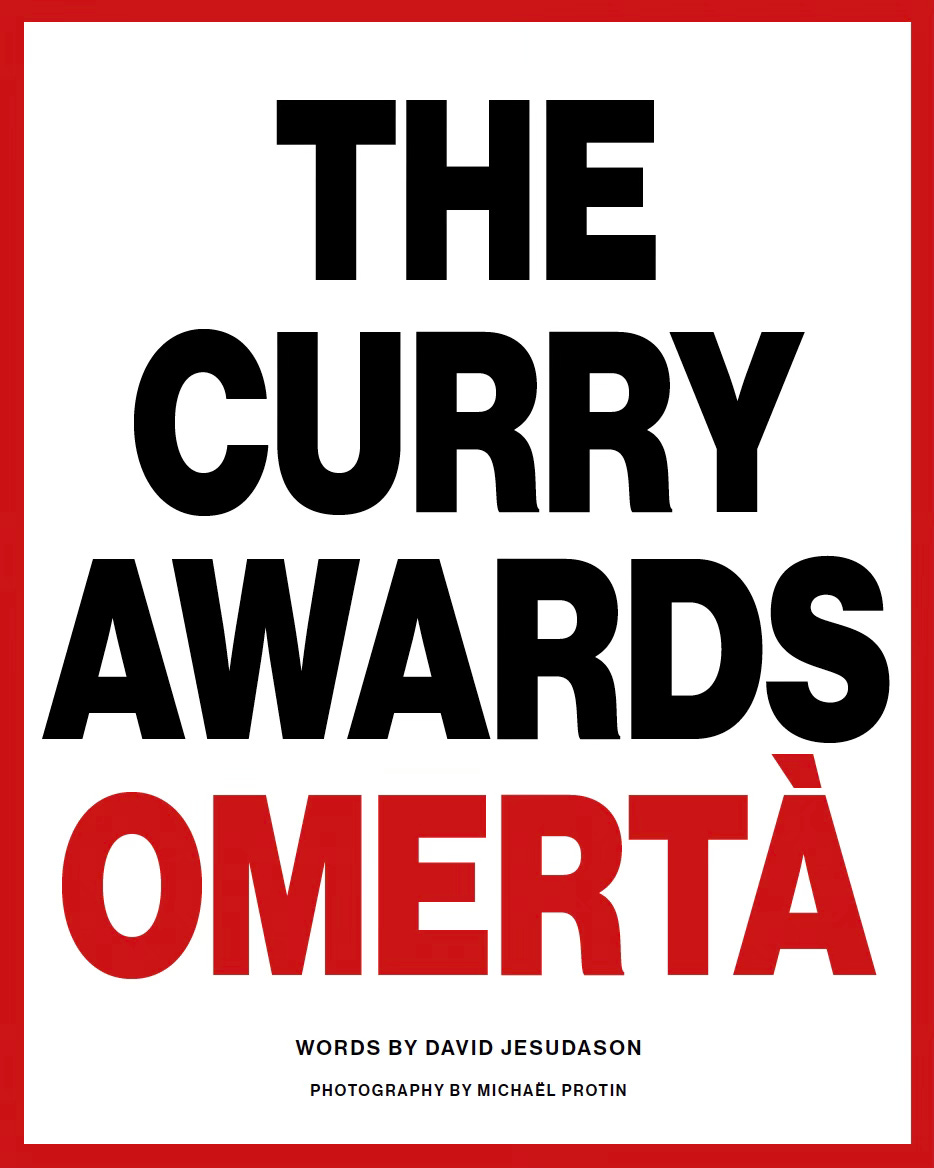
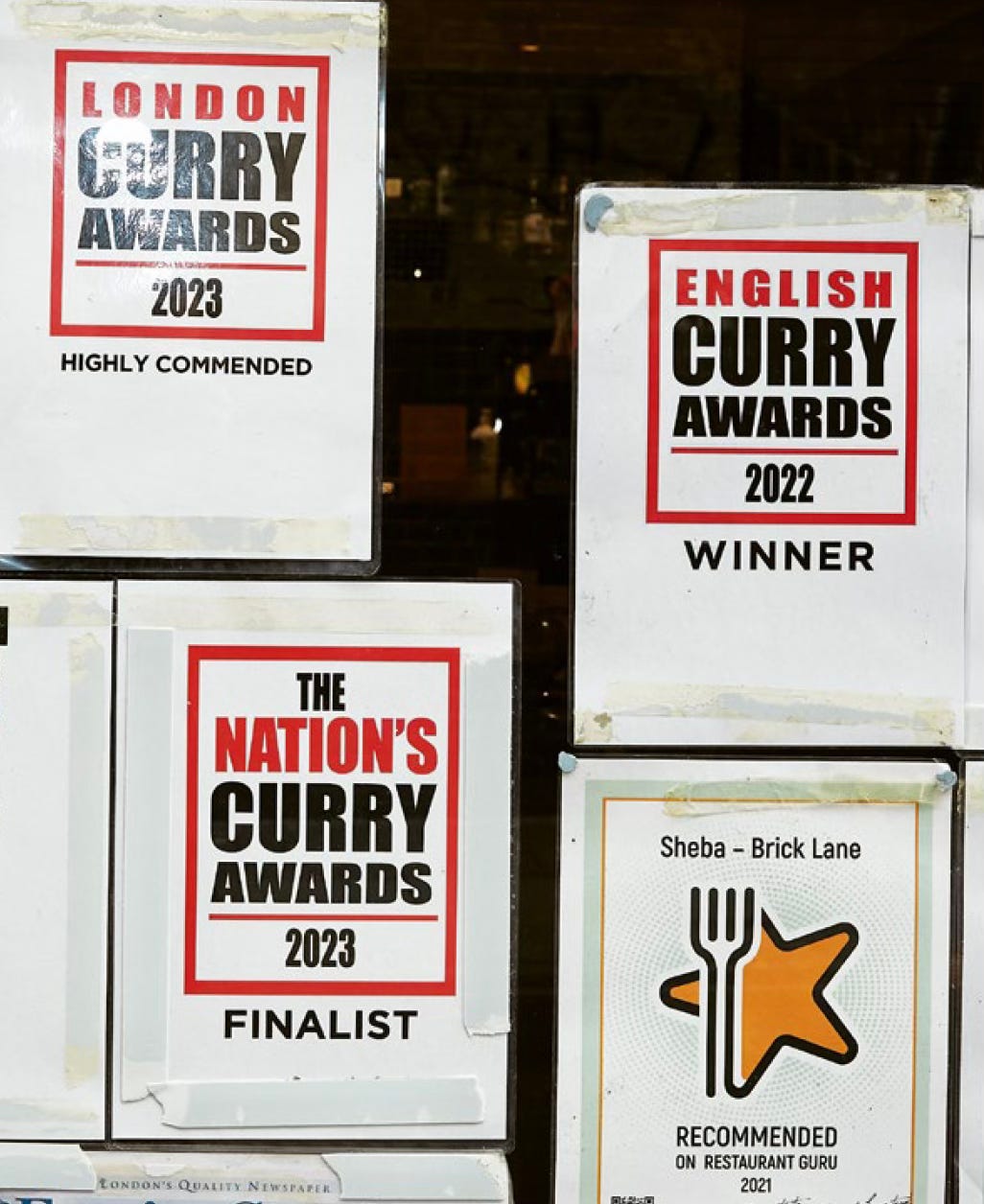
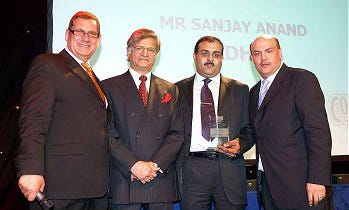
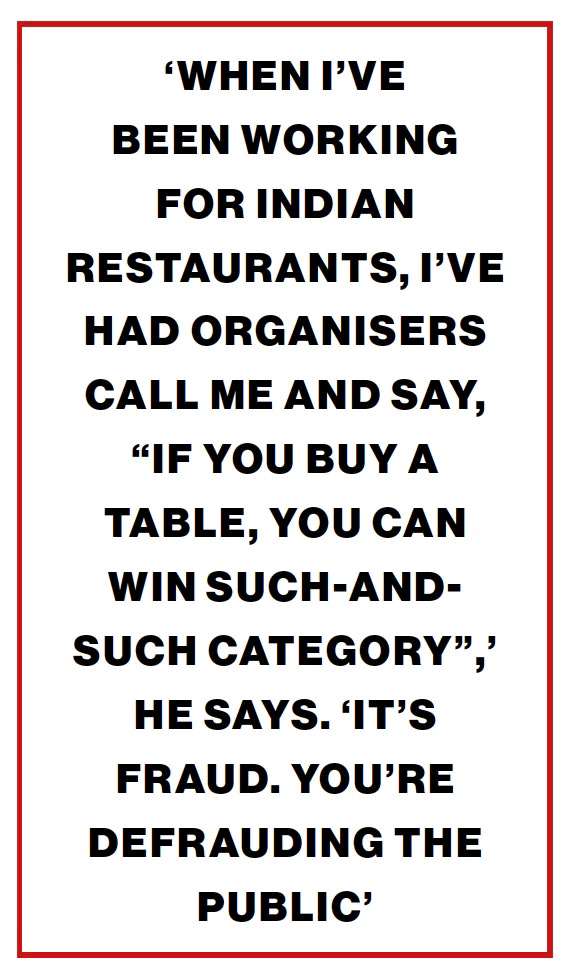
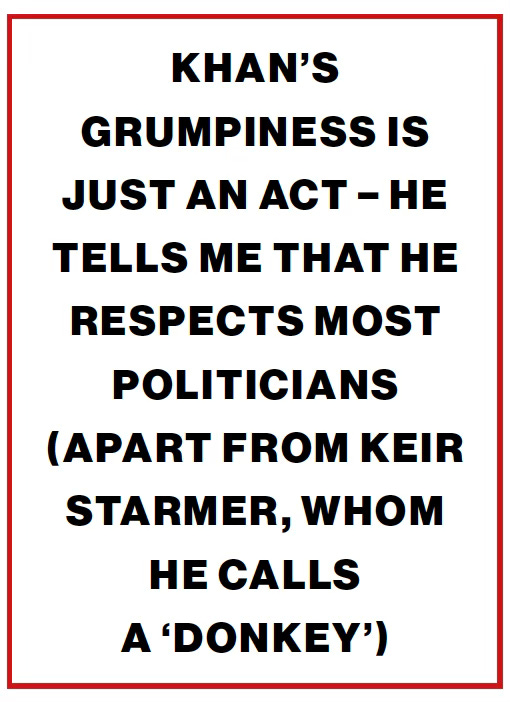

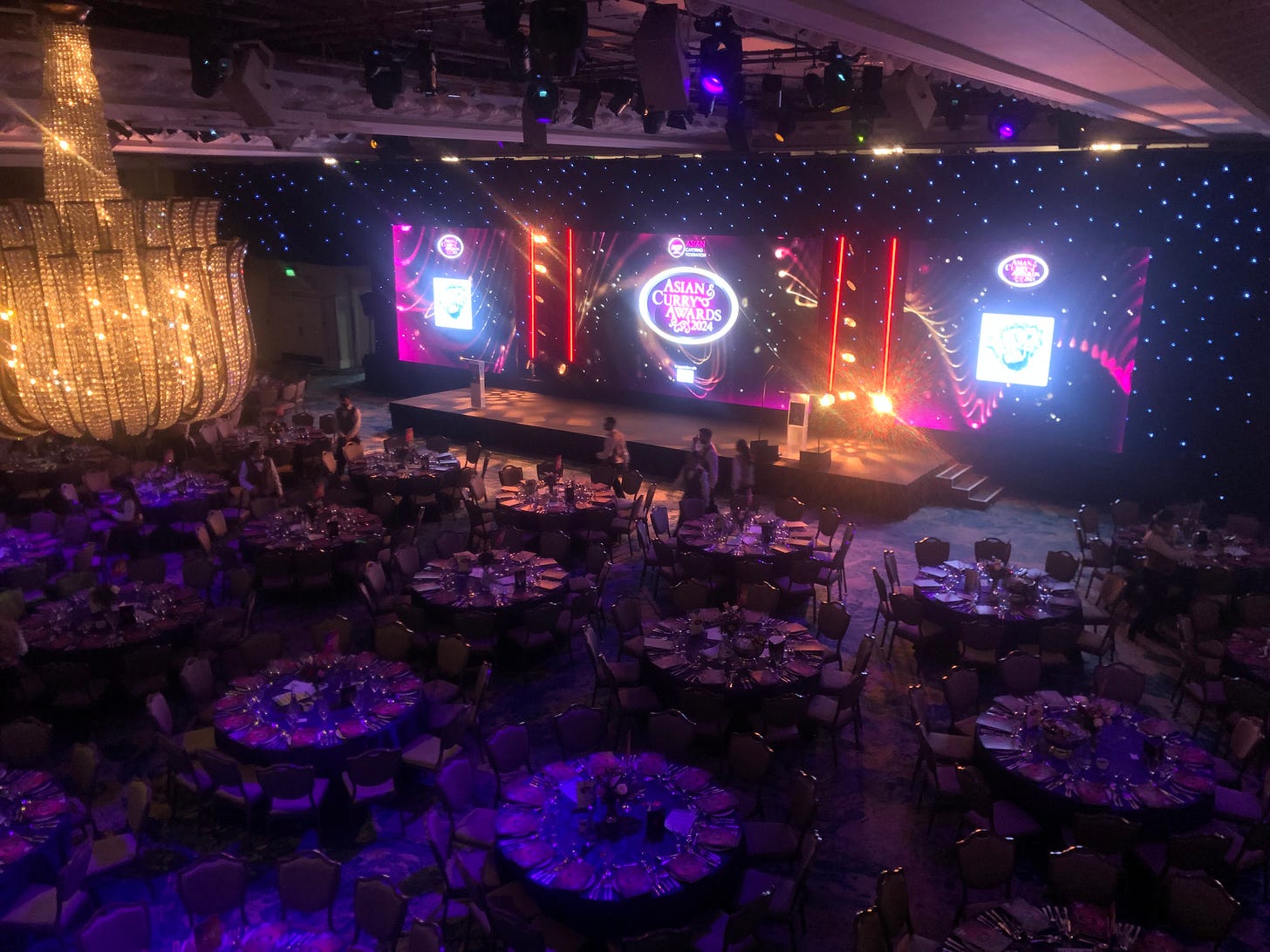
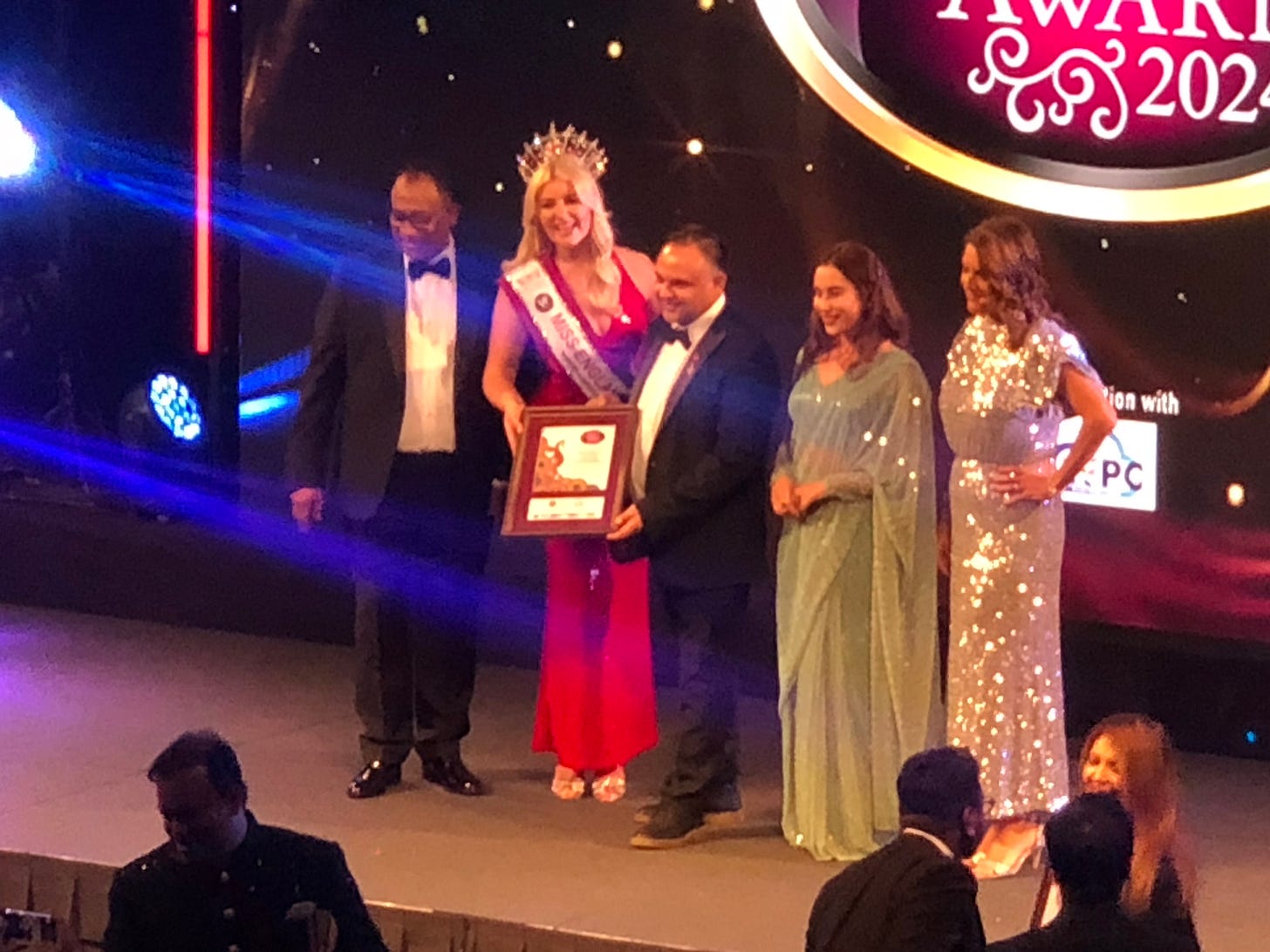
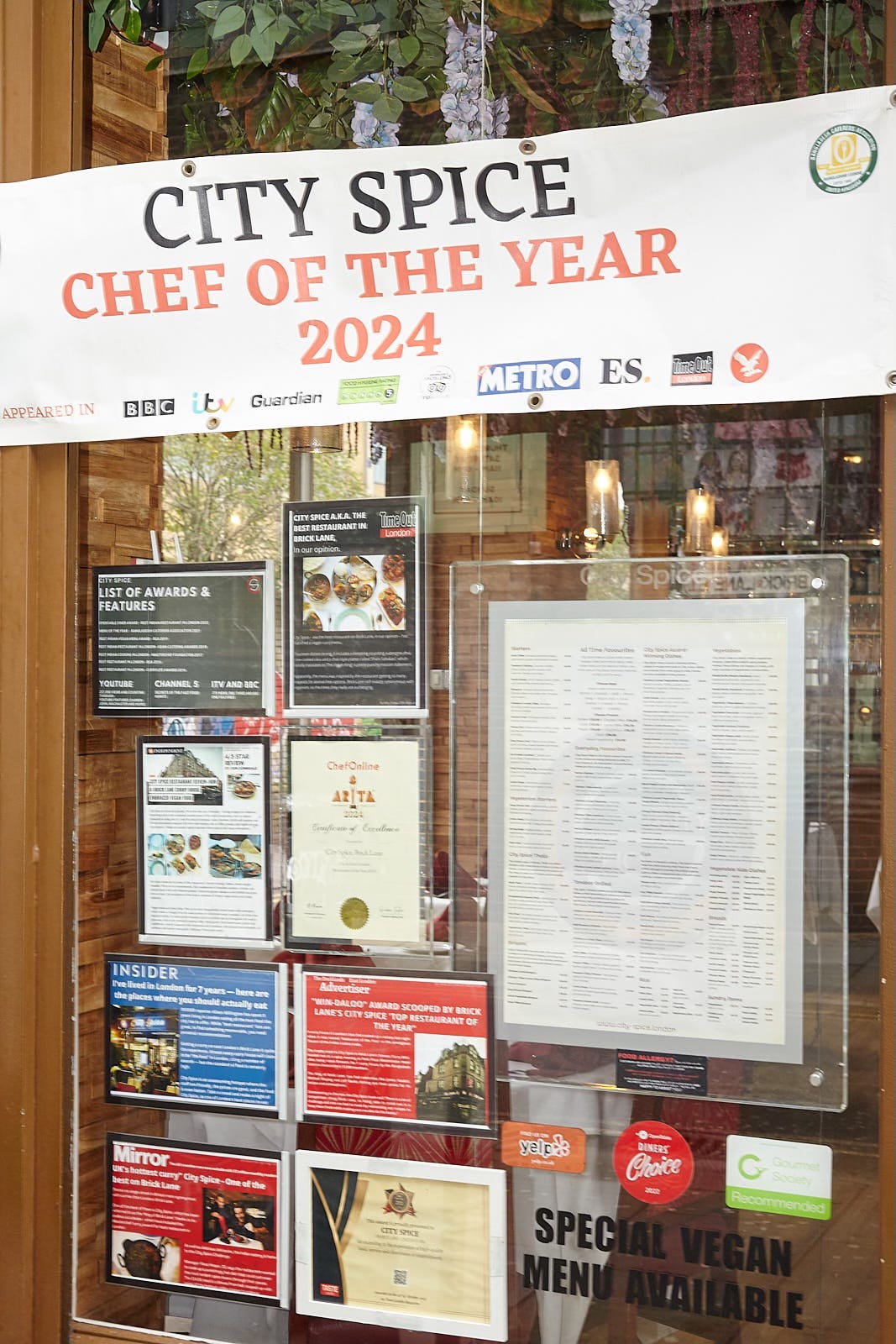
I met a young group of Asian restaurateurs, who fought back against the possibility of awards for sale and creating a fairer system. They are called ARON Asian restaurant owners network. They go out of their way by supporting each other in a restaurant scene that is changing and has had many challenges since 2018. If you have time, I recommend having a chat with Rehan Uddin who absolutely buzzes with energy via ARON who has a restaurant in Torquay/Torbay called Indiyang a hybrid of Indian and Oriental cuisine. On another note I am gutted you never got a chance to come to Cornwall to visit me in my pub The Stag Hunt Inn in Ponsanooth, Cornwall when we ran it from 2007 to 2022. We didn't start as a Desi pub, but our curry nights garnered so much attention that it made business sense to serve them all week alongside our smaller pub menu. When we agreed to cook curries, I said I only knew how to cook the curries I cooked at home, so no madras or chicken tikka masala or grilled platters, just lots of home style curries with innovative dishes like keema nachos or Indian fish and chips which would be Oven roasted fillets of Spiced Mackerel with Bombay potatoes and horseraddish raita and beetroot chutney.
Super interesting, thanks so much ! I actually met the Leicester Curry Awards founder a few months ago when he was visiting Paris (I am a French South Asian food writer based there). He told me about expand the Awards to Paris, I was super curious yet doubtful how the "curry culture" would shift to France, as the context is not the same at all. I feel it is very British and neo colonial and that the "curry debate" isn't even relevant there ? In France the "curry" label is questioned even if it is still a shy debate among restaurateurs, who still struggle to make "Indian" food famous.